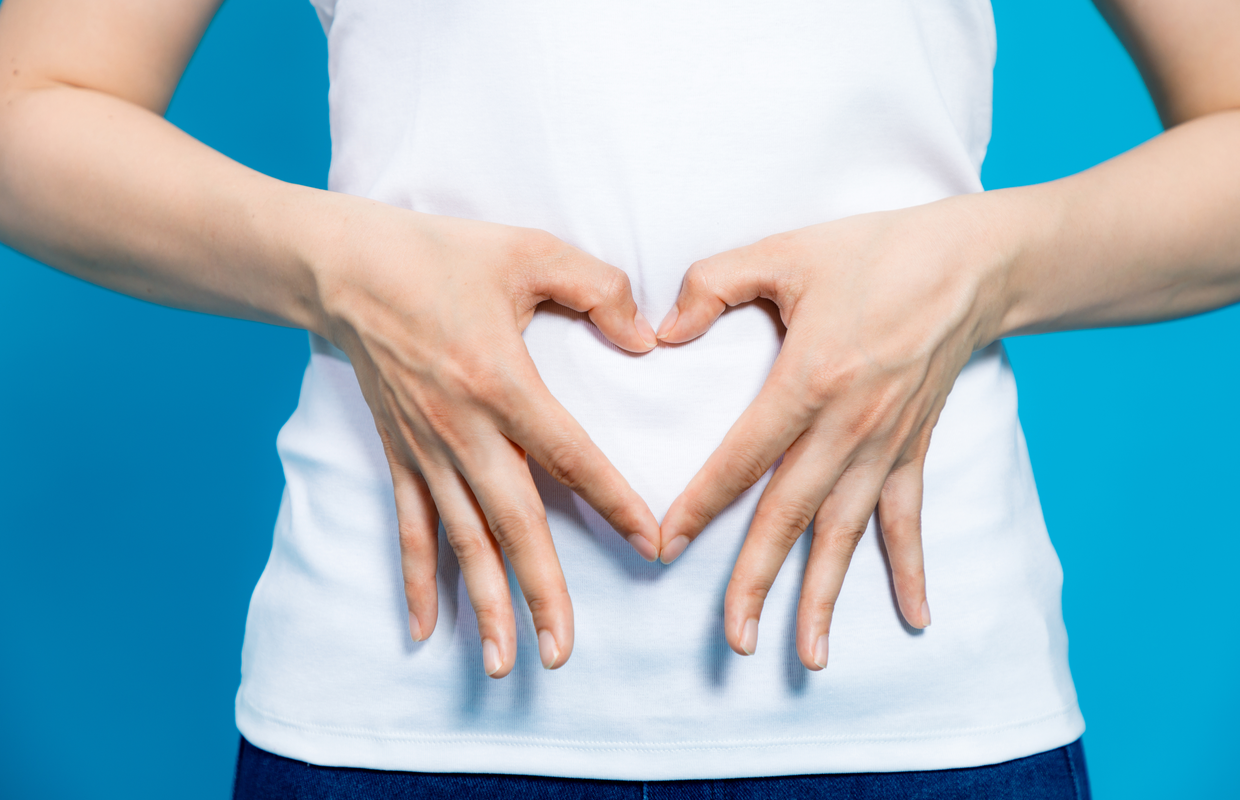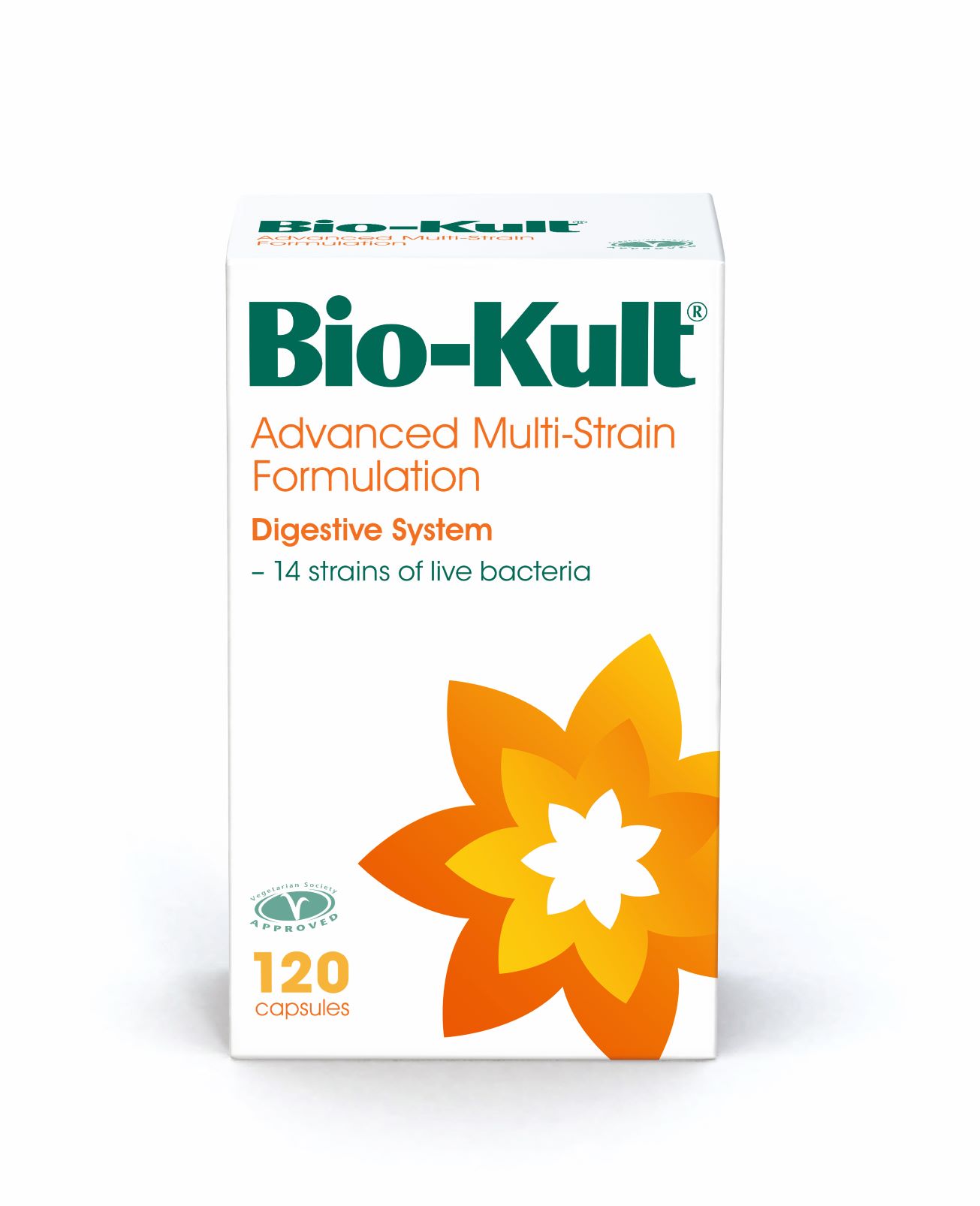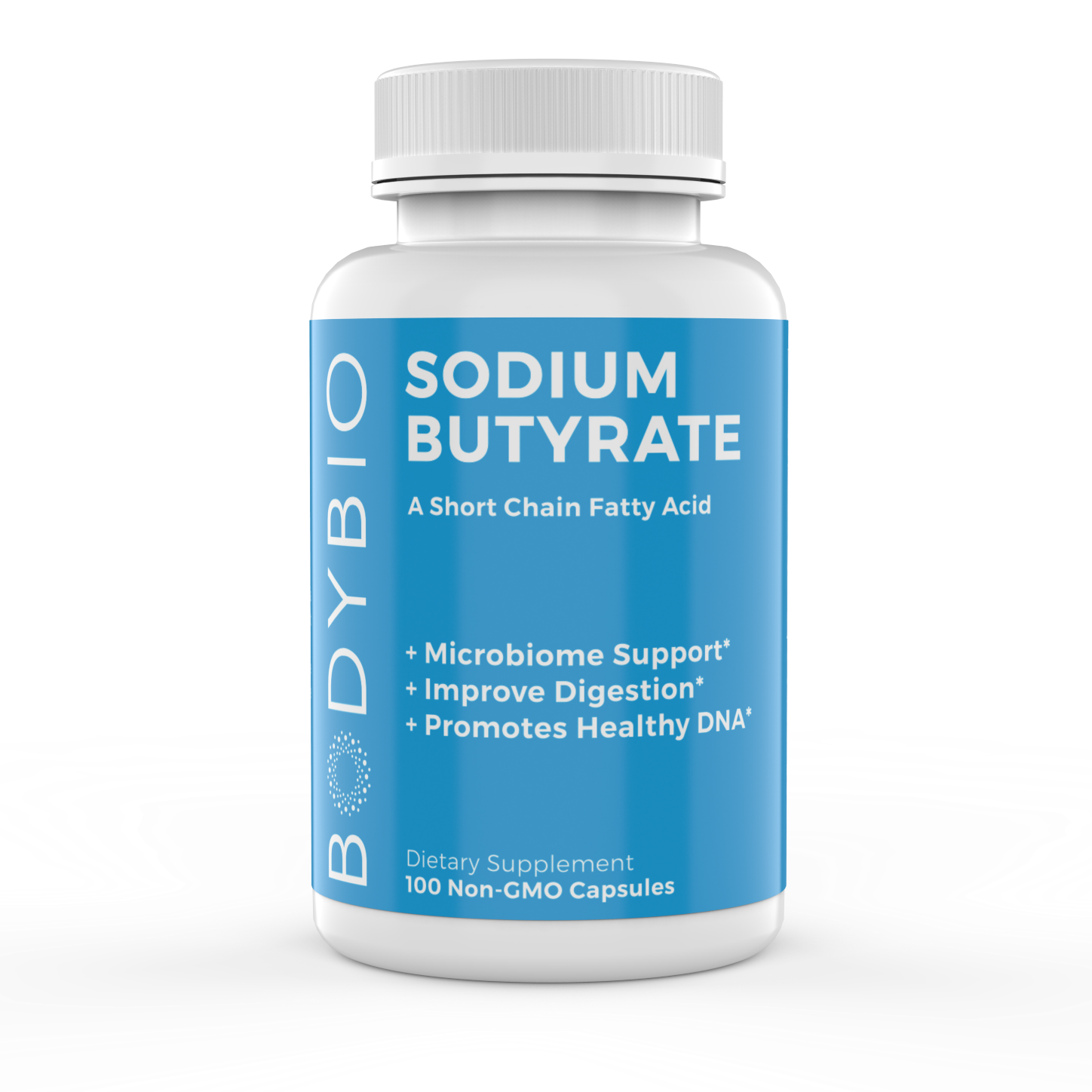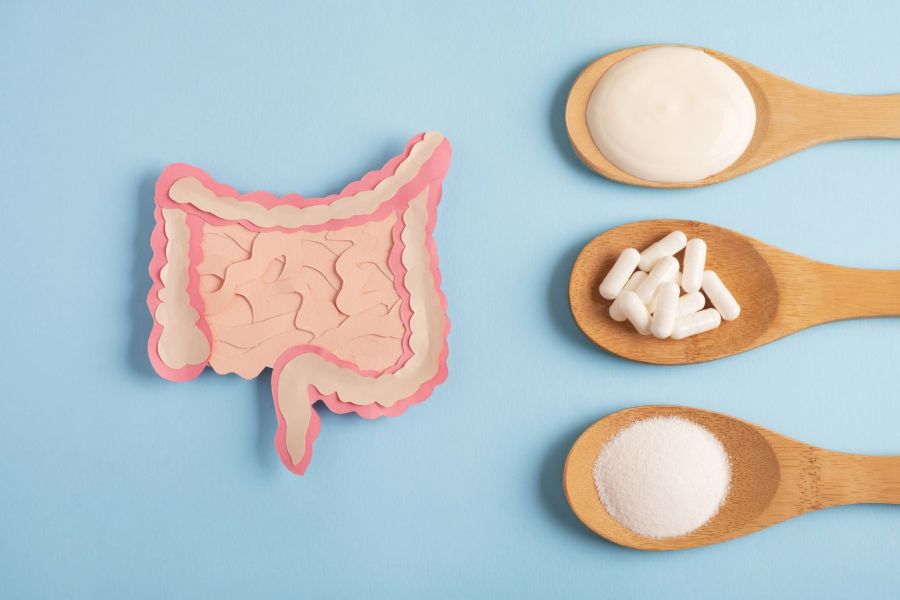Taking probiotics may seem like a good idea, but if your aim is to reach a healthier weight, postbiotics are the latest player in the world of digestive health – and they could support your goal. Discover what postbiotics are, how they work, and how they could aid your healthy weight loss journey…
The sunny days are finally here, and whether you’re planning a staycation, jetting off to a far-flung corner of the world or staying local, looking and feeling your best can help to rev up inner confidence. But, even if you’re meticulous about going to the gym, toning up from top to toe isn’t always a breeze.
Of course, a good fitness routine will help to prep your body, but switching up your diet to contain the right mix of nutrients to support your fitness goals is also a must-do. And if a slimmer middle is on your bucket list, postbiotics could be the game-changer that you’ve been after.
Why gut health is important
A good balance of gut microflora is essential for digestion, regulating immunity, mood and weight. ‘There are trillions of microbes in your gut which influence how you feel, look and think. These microbes live in communities, some of which can flourish to promote health. In comparison, others can wreak havoc,’ explains Vicky Godfrey, a registered nutritional therapist and co-founder of DNApal.
The healthy bacteria that live in the gut have many important functions: they protect us from infection, help us to digest our food, they can even produce some vitamins and help to balance mood. ‘Plus, approximately 90 per cent of “the happy hormone” serotonin is produced in the gut,’ adds Godfrey.

Probiotics, prebiotics and postbiotics
One of the best ways to keep digestive bacteria balanced is through diet. Probiotics, the live bacteria in foods like yoghurt, sauerkraut, kimchi and kefir can support a healthy intestinal environment. Supplements which offer different strains of bacteria can also help to enhance gut health.
If a flat tummy is on your agenda, along with probiotics, prebiotic foods should be on the menu. These gut-helpers, which work in synergy with probiotics, are found in fibrous foods like onions, garlic and bananas. Once digested, they ferment in the colon where they feed the probiotic bacteria, helping to increase the microflora population.
‘Ultimately, prebiotics and probiotics work together. Prebiotics act as a food source for probiotics, which we define as live organisms that are capable of multiplying. Prebiotics are essentially breakfast, lunch and dinner for probiotics, which help to increase diversity and crowd out the unfriendly bacteria,’ adds Godfrey. But it doesn’t end there.
What are postbiotics?
The new buzzword making waves in the nutrition world is postbiotics. These are nutritional goodies with a similar health profile to prebiotics. ‘Postbiotics are substances formed when the good bacteria in our gut ferment or break down dietary fibre. A good example of this is short-chain fatty acid butyrate. This has anti-inflammatory properties, and can help establish a healthy gut lining,’ reveals Godfrey.
These bioactive compounds are often thought of as waste products, created when the probiotic bacteria consume prebiotics. Turns out, they can have a big impact on gut health. Postbiotics come in many different forms, each boasting protective mechanisms. These include short-chain fatty acids (metabolites produced in the digestive system by the fermentation of dietary fibre), enzymes (proteins that help the body break down complex molecules into smaller substances that it can readily utilise) and bacterial cell wall fragments.

How do postbiotics aid weight loss?
Here are some of the ways postbiotics can aid you on your healthy weight loss journey…
Postbiotics relieve bloating
Poor digestion is a key cause of bloating, and postbiotics could help ease the pain of bloating. One study shows that IBS patients who used postbiotics experienced lower pain and reduced bowel movement frequency. Plus, a separate study showed postbiotics to be effective at treating diarrhoea.
Postbiotics lower blood sugar levels
Erratic blood sugar levels are to blame for triggering cravings. It turns out, postbiotics could be the secret weapon to help regulate blood sugar levels. In particular, the postbiotic known as muramyl dipeptide has been shown to help improve insulin sensitivity. This could help to prevent cravings and overeating to keep weight in check.
Reduce hunger pangs with postbiotics
Can’t seem to fight those mid-morning hunger pangs? Studies show a link between postbiotics and appetite regulation. These metabolic byproducts could help to keep your weight in check by stimulating gut hormones, essentially increasing the production of satiety hormones.
Use postbiotics to boost your metabolism
Sluggish metabolism? Postbiotics could help to rev up the rate at which your body burns fat, specifically by influencing the level of weight loss-inducing brown fat in the body. This may help to increase calorie burn.
Best probiotic, prebiotic and postbiotic supplements

Best probiotic supplement: Bio-Kult Advanced Multi-Strain Formulation (£9.48)
With 14 strains of live bacteria, this probiotic supplement helps to repopulate the gut microbiome.

Best prebiotic supplement: Bimuno Daily (£19.99)
When taken daily, this gut health supplement has been scientifically proven to feed and stimulate the growth of beneficial bacteria in the gut, within seven days*.

Best postbiotic supplement: Bodybio Sodium Butyrate (£31.99)
Keep your gut in great shape with this digestive supplement which features the postbiotic calcium magnesium butyrate.
Words: Louise Pyne | Images: Shutterstock
Related: Yoga for gut health – best poses for IBS and bloating
*Scientific data shows that daily use of Bimuno increases bifidobacterial levels within seven days; results may vary.







